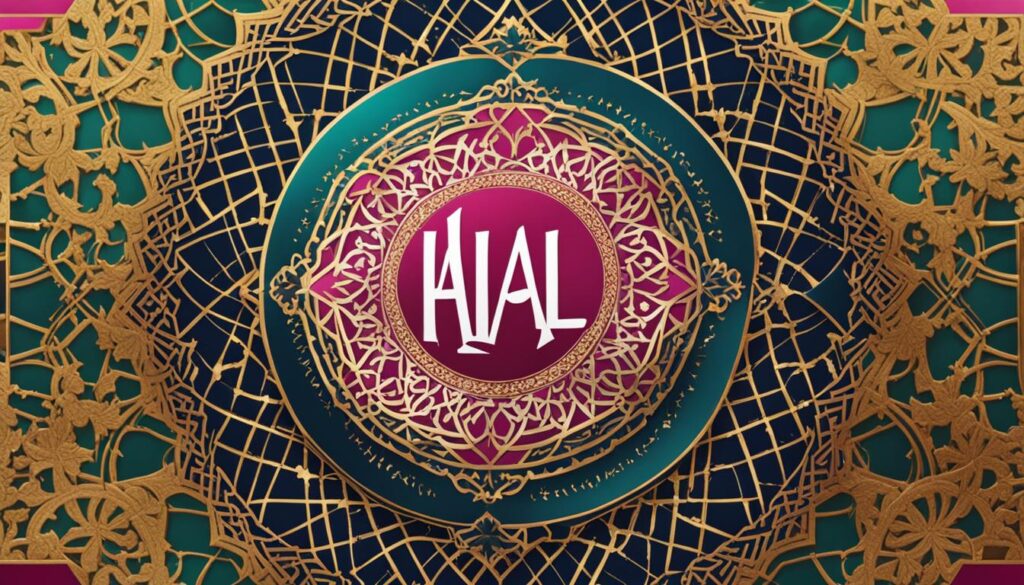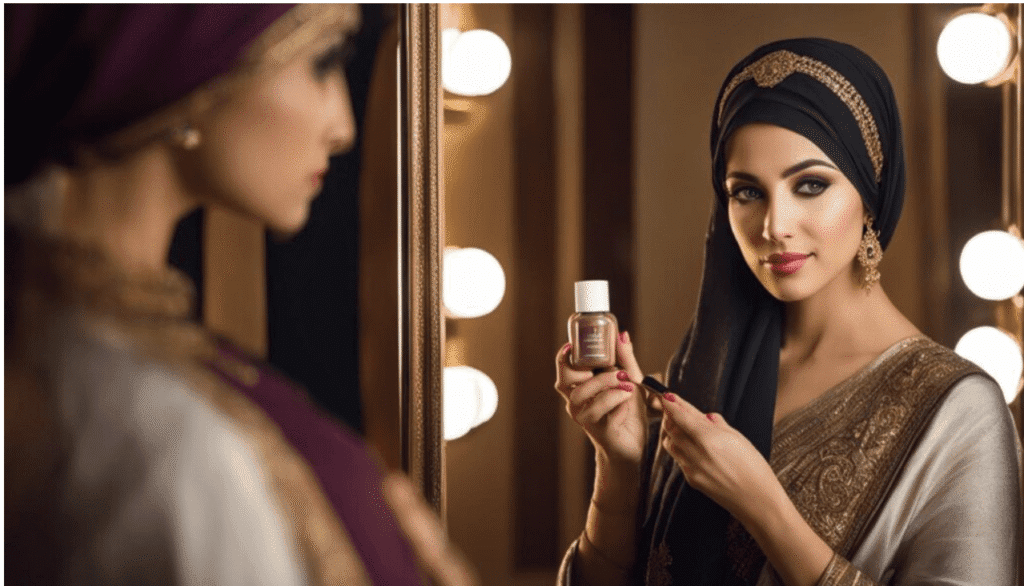Ready to blend beauty with belief? Let’s explore the surprisingly layered relationship between makeup and Islam. In this article, we’re not just brushing over the topic—we’re diving deep into whether makeup is considered haram (forbidden) for women in Islam. From eyeliner to ethics, and modesty to mascara, we’re unboxing the religious teachings, cultural trends, and halal-friendly insights that shape how Muslim women approach adornment.
Now for the million-dollar question: is wearing makeup a sin or simply a way to slay modestly? Stick around as we untangle the shades of opinion within Islamic thought—because in this case, it’s not just black or white… there are a lot of nudes and neutrals in between.
Key Takeaways:
- Islamic teachings emphasize the importance of modesty and adornment in defining beauty.
- Cultural shifts have influenced Muslim women’s use of makeup while adhering to Islamic principles.
- There are varying perspectives on the permissibility of makeup in Islam.
- Halal-certified makeup ensures compliance with Islamic law and ethical guidelines.
- Understanding the ingredients and practices that make makeup haram is crucial for choosing halal alternatives.
Understanding the Islamic Perspective on Beauty and Cosmetics
In this section, we delve into the Islamic perspective on beauty and cosmetics, shedding light on the teachings that shape the adornment practices of Muslim women. Islamic teachings emphasize the concept of modesty and the importance of preserving one’s natural beauty. Let’s explore how these teachings influence the use of makeup and how cultural shifts impact Muslim women’s approach to beauty.
Modesty and Adornment in Islamic Teachings
In Islam, modesty is highly valued and encompasses various aspects of a person’s life, including their appearance. Islamic teachings view beauty as a gift from Allah, to be celebrated and cherished, but within the boundaries of modesty. Adornment in Islam encourages individuals to enhance their natural beauty while remaining modest and avoiding extravagance.
Cultural Shifts in the Use of Makeup by Muslim Women
As times change, cultural norms and perceptions of beauty evolve, impacting the use of makeup by Muslim women. While some Muslim women choose to embrace makeup as a form of self-expression and confidence, others opt for a more minimalistic approach to align with Islamic values and cultural traditions. These shifts reflect the diverse interpretations and personal choices made by Muslim women worldwide.
Assessing the Impact of Makeup from a Shariah Viewpoint
From a Shariah viewpoint, the impact of makeup extends beyond aesthetics. Islamic teachings encourage Muslims to prioritize inner beauty and righteousness over external appearance. It emphasizes the importance of sincerity, self-respect, and avoiding excessive adornment that may lead to vanity or a false sense of self-worth. The use of cosmetics is permitted as long as it is in moderation, reflects modesty, and adheres to ethical guidelines.
| Islamic Teachings on Beauty and Adornment | Cultural Shifts in Muslim Women’s Use of Makeup | Impact of Makeup from a Shariah Viewpoint |
|---|---|---|
| Emphasis on modesty and celebrating natural beauty | Diverse interpretations and personal choices | Encouragement of sincerity and avoidance of excessive adornment |
| Prioritizing inner beauty and righteousness | Alignment with Islamic values and cultural traditions | Moderation, modesty, and adherence to ethical guidelines |
By understanding the Islamic perspective on beauty and cosmetics, we gain insight into the principles guiding Muslim women’s choices in adornment practices. The next section will address the question of whether makeup is considered haram (forbidden) for women in Islam, providing a comprehensive analysis of the topic.
Is makeup haram for women in Islam?
When it comes to makeup in Islam, the eyeliner isn’t the only thing with fine lines—so are the rulings. Some scholars frown on it, especially if it invites unnecessary attention or clashes with modesty, while others give it a nod if worn with sincerity and within Islamic bounds. The heart of the matter? Intention. If you’re contouring to impress the opposite gender or feed the ego, that’s a red flag; but if it’s about feeling presentable or boosting confidence modestly, many scholars say it’s a-OK. Cultural context adds another layer—what’s subtle in one place might scream “extra” in another—so it’s wise to check in with scholars who get both your deen and your scene. In the end, it’s about balancing that blush with taqwa.
Distinguishing Features of Halal-Certified Makeup
Halal-certified makeup possesses unique features that set it apart from conventional cosmetics. Firstly, it excludes haram ingredients, making it suitable for Muslim consumers. Additionally, halal-certified makeup often incorporates natural and wholesome ingredients, promoting skin health and overall well-being.
Moreover, halal-certified makeup is manufactured using ethical practices that align with Islamic principles. This includes ensuring fair labor practices, environmental sustainability, and cruelty-free production methods. These features make halal-certified makeup a desirable option for consumers who value both religious compliance and ethical considerations.

| Challenges in Halal Cosmetic Branding | Trust Factors in Halal Cosmetic Products |
|---|---|
| Limited availability of halal-certified products | Transparency in the certification process |
| Meeting diverse consumer preferences and trends | Verifiable information about ingredients and manufacturing |
| Establishing credibility in the beauty industry | Collaboration with reputable certification bodies |
By addressing these challenges and highlighting trust factors, halal cosmetic brands can establish a strong foothold in the market and cater to the needs of Muslim consumers around the world.
Ingredients and Practices That Make Makeup Haram
In the earlier sections, we explored the Islamic perspective on beauty, the permissibility of makeup, and the role of halal certification—but now it’s time to uncover what can make makeup haram. Certain ingredients commonly found in cosmetics clash with Islamic teachings: gelatin and lard, often derived from pigs, are off-limits; carmine, a red dye from crushed insects, is also considered haram due to the prohibition on consuming insects; and alcohol, frequently used in beauty products, is avoided for its impure and intoxicating nature. Beyond ingredients, some practices also raise red flags—permanent body modifications like cosmetic surgery or tattoos (unless medically necessary) are generally impermissible, as they alter the natural form Allah created. So, while makeup can enhance, it should never compromise faith, purity, or the integrity of one’s body and beliefs.
- Gelatin: Derived from animal collagen, gelatin is often used in cosmetics. However, it is haram as it is sourced from pigs.
- Carmine: This red pigment, also known as cochineal or carminic acid, is derived from crushed insects. It is considered haram as consuming insects is not permissible in Islam.
- Alcohol: Many cosmetic products contain alcohol, which is forbidden in Islam. Alcohol-based ingredients are not permissible as they are considered intoxicating and impure.
- Lard: Derived from pig fat, lard is often used in beauty products. However, it is haram due to its animal origin.
Vegan, Organic, and Cruelty-Free: The Intersection with Halal Standards
Halal cosmetics now go beyond simple compliance with Islamic dietary laws and extend to ethical principles that align with the growing demand for vegan, organic, and cruelty-free products. By embracing these standards, halal cosmetics promote the use of natural and sustainable ingredients while excluding any substances derived from animals or tested on them. This crossover between halal and ethical beauty practices offers Muslim consumers a wider range of choices that meet their religious as well as environmental and ethical values.
Exploring Halal Alternatives in Makeup for Women in Islam
As the demand for halal cosmetics continues to rise, the beauty industry is offering an array of halal alternatives for Muslim women. These alternatives prioritize natural and wholesome cosmetic ingredients, ensuring that women can adhere to their religious beliefs while still expressing their personal style.
Shifts Towards Natural and Wholesome Cosmetic Ingredients
In recent years, there has been a significant shift towards using natural and wholesome ingredients in cosmetics. This aligns with the principles of halal makeup, which advocates for products that are free from haram (forbidden) ingredients. Muslim women are now able to find a wide range of halal-certified makeup brands that offer high-quality products made from botanical extracts, minerals, and other natural sources.
By embracing these natural ingredients, Muslim women can confidently enhance their beauty without compromising their faith. These halal alternatives not only provide vibrant and long-lasting colors but also offer nourishing benefits for the skin, ensuring a holistic approach to beauty.
Innovation in Water-Permeable Nail Polishes for Wudu-Friendly Options
Another significant development in halal alternatives is the innovation of water-permeable nail polishes. Wudu (ablution) is an integral part of Muslim women’s daily prayers, and traditional nail polishes often prevent water from reaching the nails, making the ablution process challenging.
To address this issue, cosmetic brands have introduced wudu-friendly nail polishes that allow water to pass through, ensuring that Muslim women can maintain their prayer rituals without compromising their appearance. These water-permeable formulas provide a practical solution, allowing women to confidently wear nail polish while adhering to their religious obligations.
The Rise of Halal Makeup Brands and Their Global Impact
The demand for halal cosmetics is not limited to Muslim-majority countries. Halal makeup brands are gaining popularity worldwide, as more women seek ethical and natural alternatives. These brands cater not only to Muslim women but also to individuals who prioritize clean and eco-friendly beauty products.
Halal makeup brands have been successful in spreading awareness about the importance of ethical and inclusive beauty practices. Through their commitment to halal-certified products, they have set new industry standards and inspired mainstream brands to adopt similar guidelines.
With their global impact, halal makeup brands are promoting diversity, inclusivity, and sustainability within the beauty industry. Their success serves as a testament to the growing influence of halal cosmetics on the global stage.
| Halal Alternatives in Makeup for Women in Islam | Natural and Wholesome Cosmetic Ingredients | Wudu-Friendly Nail Polishes | Rise of Halal Makeup Brands |
|---|---|---|---|
| Benefit from products that align with Islamic principles | Embrace botanical extracts and minerals for healthy beauty | Water-permeable nail polishes for seamless ablution | Global success and influence of halal cosmetics |
| Express personal style without compromising faith | Nourishing benefits for the skin | Confidence in maintaining prayer rituals | Setting industry standards for ethical beauty |
| Vibrant and long-lasting colors | Promoting diversity and inclusivity |
Conclusion
So, what is the Islamic rulings for Guys?
Source Links
- https://mersicosmetics.com/blogs/blog/is-makeup-haram
- https://www.halalwatchworld.org/everything-you-need-to-know-about-the-halal-cosmetic-industry
- https://www.youtube.com/watch?v=kKnOJvNZ01I
- What Does Having It All Mean for a Woman in Islam?


